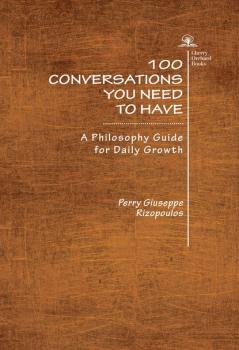ТОП просматриваемых книг сайта:
Perry Giuseppe Rizopoulos
Список книг автора Perry Giuseppe RizopoulosАннотация
The most outstanding feature is the interweaving of the grandfather’s stories—revealed in segments during progressive visits while the grandfather is in the process of dying, with the author’s own stories about his relationships and struggle to understand what it means to be a contemporary man within his family’s traditions. The interaction between the two men, one very young and the other very old, not only strengthens a bond that deeply affects the author, but resolves the grandson’s struggle to reconcile his obligations to his grandfather, his pappou, with his desire to find his own path.The relationship between the grandson and his grandfather creates a universality that will appeal to people The cultural and historical specificity of the work will also make it appealing to groups of individuals including Greeks, Italians, Bronxites, New Yorkers and people interested in history The structure of the narrative make the historical and brutal aspects very accessible and weaves a story that will encourage readers to feel a range of emotions and feel engaged throughout It is a relatively short piece that packs a serious philosophical punch It is based on a first-hand account of the events in Greece during WWII
Аннотация
The notebooks included in the three volume set 100 Conversations You Need to Have contain A Philosophy Guide, A Stoic Philosophy Guide , and A Chinese Philosophy Guide. Each notebook offers an accessible and thought-provoking collection of life’s big questions and corresponding answers from some of history’s greatest philosophers. Readers are provided with the opportunity to answer each question, turn the page and receive a short piece of advice from thinkers on topics that include happiness, friendship, discipline, patience, the meaning of life and death, and other essential topics. The list of philosophers that are featured in each notebook is very multicultural. It includes both men and women and spans across time, including, among others, Aristotle, Seneca, Simone de Beauvoir, Lao Tzu, Dr. Martin Luther King Jr., Alfarabi, Jean-Paul Sartre and Pema Chodron. These notebooks duplicate the Socratic dialogue method and embody the idea of philosophy being a pathway to a more fulfilling life by creating 100 meaningful dialogues between the reader and a diverse array of interlocutors who will guide them on their journey to crafting a good life.


